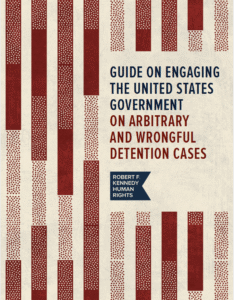IN THE FACE OF MYANMAR’S RECENT MILITARY COUP, WE URGE THE INTERNATIONAL COMMUNITY TO IMPOSE STRONG, TARGETED SANCTIONS, AS WELL AS AN ARMS EMBARGO, AGAINST THE MEMBERS OF THE TATMADAW.
Early Monday morning, the Myanmar military, known as the Tatmadaw, staged a military coup, detaining civilian government authorities, including elected leader State Counsellor Aung San Suu Kyi and other members of the ruling National League for Democracy (NLD), as well as members of civil society and journalists.
Amidst its accusations of “voter fraud” after the NLD won the November 2020 general elections, the Tatmadaw has declared a one-year state of emergency after which it allegedly plans on holding another election.
This strategic takedown of democracy isn’t anything new. The Tatmadaw made similar promises of conducting a new election the last time there was a military coup in Myanmar in 1990 but, notably, one didn’t materialize for over two decades. During that period, the military arrested hundreds of political prisoners and dozens fled Burma to seek refuge abroad.
Robert F. Kennedy Human Rights urges global leaders to immediately act in the face of this military coup and to swiftly impose strong, targeted sanctions, as well as an arms embargo, against the members of the Tatmadaw.
While some of the most massive and horrendous human rights abuses, including the Rohingya genocide, happened under the watch of Aung San Suu Kyi, the seizing of full control precisely by the architects of such genocide and so many other abuses against ethnic minorities and civil society, can only increase their already precarious situation. The current head of the military who took control of Myanmar overnight, Commander-in-Chief Senior General Min Aung Hlaing, is the public face of the violent 2017 attacks against the Rohingya people.
Heeding calls made by the United Nations, the military must immediately release NLD leaders and all those that have been arbitrarily detained, as well as respect the right of the Myanmar people to freedom of expression and of peaceful assembly.
“This military coup brings the country back to its darkest period for democracy and human rights, where the population had to endure repressive military regimes for almost half a century,” said Angelita Baeyens, vice president of international advocacy and litigation for Robert F. Kennedy Human Rights. “If the international community has anything to learn from this it’s that failure to act in a united and decided way to hold the perpetrators of serious human rights abuses accountable leaves the door open to have them destroy a country’s fragile democratic gains.”
Read Kerry Kennedy’s reflections from the RFK Human Rights expert delegation to Myanmar and Bangladesh here.
Read about the repression of civic space and exclusion of minority groups ahead of Myanmar’s November 2020 elections here.




